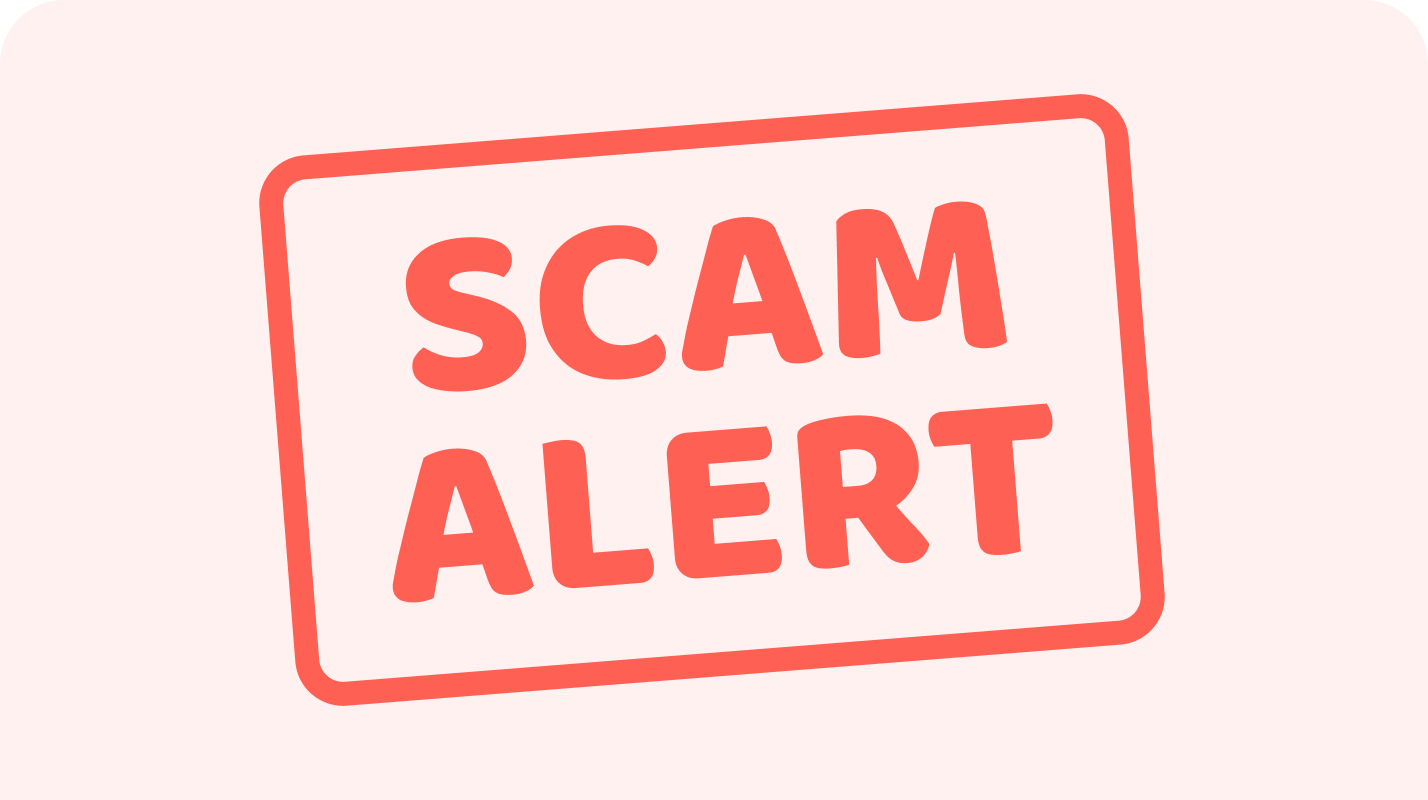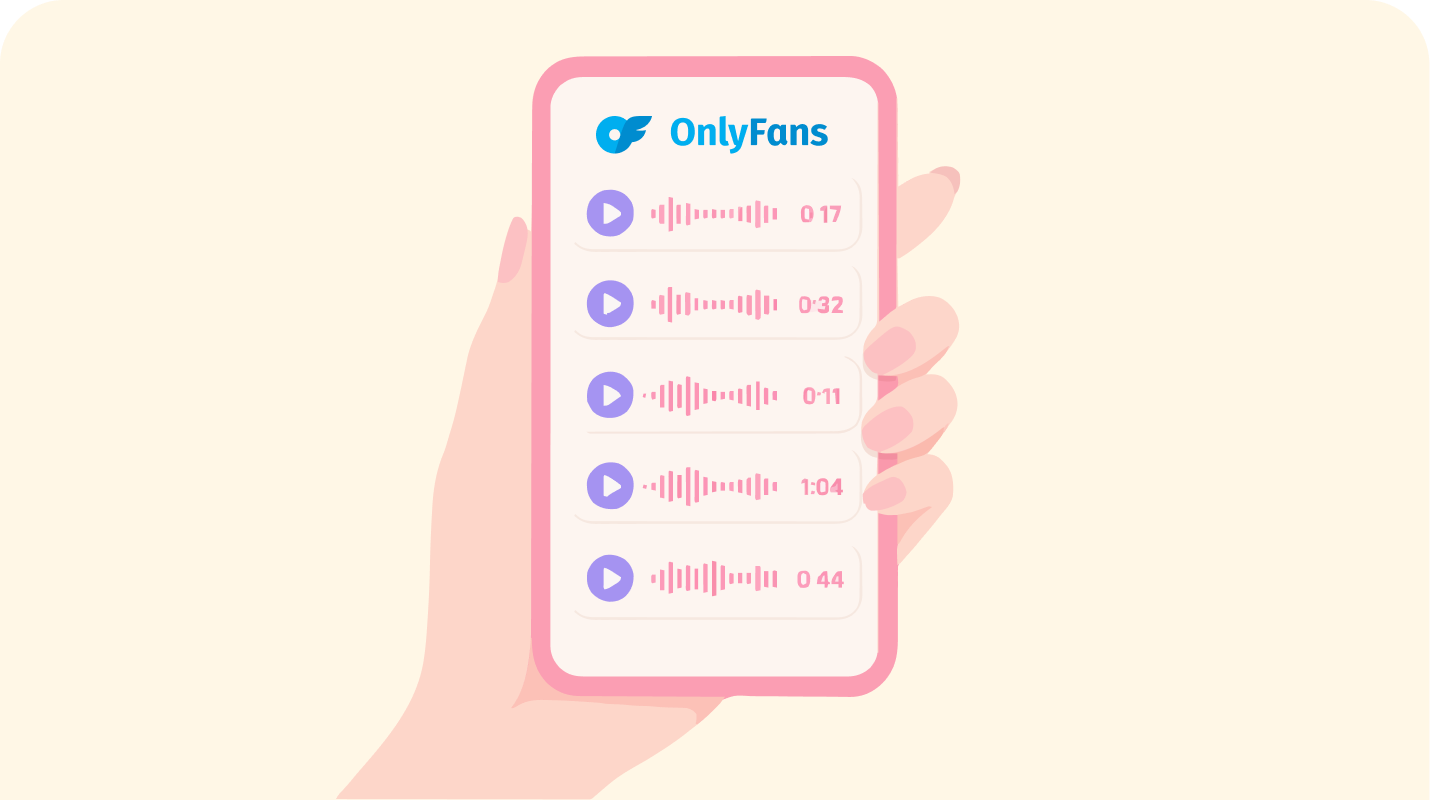Like ants to honey, OnlyFans has attracted some of the worst vices out there. Creators are now at the mercy of scams from bots, shady agencies, and content thieves.
The reality is that scams are inevitable, but being a victim isn’t. Most successful OnlyFans creators have built systems that reduce exposure to scams. They watermark everything, vet every "opportunity," and never hand over account access.
The Most Common OnlyFans Scams Creators Face
OnlyFans scams are more common than you might think. The scary part is that some scams come in pretty and ambiguous packages. Here are some of the common OnlyFans scams you may face:
- Fake subscriber scams: Imagine a fan asking for custom content immediately after subscribing. It seems too good to be true, right? Well, there’s a chance that such fans are about to perpetuate a fake subscriber scam. They often subscribe with stolen credit cards and demand nudes before tipping. After receiving the content, the fan may initiate a chargeback, getting back the money they paid you for it.
- Stolen or leaked content: This type of scam is quite common because creators almost have no control over their content. It’s where a fan buys and resells your content on other platforms. We’ve seen entire creator portfolios stolen and repackaged on foreign platforms. Leaked OnlyFans content also exposes you to unwanted attention. This often applies to creators who set their content to appear in specific regions for privacy reasons. Log every sale and delivery in an onlyfans crm so you can match files to buyers and speed up DMCA claims.
- Agency exploitation: If you’re a newbie on OnlyFans, you might come across agencies trying to sign you up. Some agencies might offer viral growth in exchange for up to 30 to 50% commission. In most cases, they either under-deliver, ghost you, or deliver recycled bot followers. The worst part is when they pressure you to sign exclusive contracts that are auto-renewable with no performance clauses.
- Phishing or fake support accounts: The devil works hard, but the average OnlyFans scammer works harder. These scammers may pose as OnlyFans support, tempting you to click on malicious links, and by doing that, they steal your logins or payment information. As a result, you may automatically lose your account or earnings. There are also cases where OnlyFans suspends accounts with suspicious activities.
What OnlyFans Scams Really Look Like
OnlyFans scammers are always refining their tactics. However, they often slip up by revealing these red flags:
- Bad English and generic usernames: Bad English is a dead giveaway that you’re about to get scammed. Most scammers use bot-generated DMs that are often riddled with bad grammar. Also, watch out for generic usernames like “SexyGirl123” or “Loverboy2025”.
- False verification: OnlyFans scammers might post fake verification links to get you to lower your guard. However, they often slip up, as the verification may come in the form of handwritten notes with mismatched usernames. Some verification request links might direct users to malicious links.
- Overpromising or not meeting up with requests: Sometimes, it’s a red flag when the fan or creator acts too eager to deliver after you take specific actions. For instance, creators may promise to immediately send content after receiving payments. On the other hand, shady fans may request free content before making a payment. So, always make sure there’s enough proof that the other party will follow through on their promise.
- Agent management deals that seem outrageous: Watch out for promises that sound too good to be true, like “we’ll make you $50K per month.” Agencies using these tactics often exaggerate results, demand high commissions upfront, or push aggressive sales strategies that don’t match your goals.
- Off-platform demands: Fraudsters will try to convince you to take payments outside the platform. In those cases, they’re usually trying to cheat you out of your content or cash. The worst thing is that you can’t report to OnlyFans Support since the platform may ban or suspend your account for external activities.
Common Scam Scenario Creators Face
One of the most common setups happens in creator groups on apps like Telegram or Discord. It often starts with members casually talking about how hard it is to grow, then an “admin” or connected account jumps in, recommending an agency that claims to guarantee tens of thousands of followers. The agency usually flashes fake screenshots or “proof of earnings,” then asks for an upfront fee to join or promote you.
We’ve seen countless creators lose money this way. The pattern is the same every time: the agency collects the fee, disappears, or delivers bot accounts that never spend a cent. It’s a reminder that if an agency refuses to verify itself with a real video call or cannot provide genuine testimonials, it’s a red flag.
What to Do if You’re Targeted or Scammed on OnlyFans
So, you’ve been scammed. The best course of action is to respond as quickly and strategically as possible to minimize damage. Panicking won’t help. Here’s how to respond if someone impersonates you or leaks your content:
- Step 1: Gather evidence. Keep track of everything, from DMs to the stolen content to the fan’s profile. You can also keep links to websites that contain your content without your approval. A reverse image search via Google Images will reveal all websites holding the content.
- Step 2: Report the stolen content or use DMCA to take down content on off-platforms. For stolen content on OnlyFans, send a report detailing the incident to the platform’s support page. If the leak occurred outside the platform, use OnlyFans’ free DMCA service to take them down.
- Step 3: Warn your fans about the leak. Create a post concerning the incident and pin it on your social media platforms. Be sure to include a link to your real OnlyFans page.
Report scammers directly through OnlyFans
OnlyFans has strict security measures to prevent scam activities on the platform. For instance, you can report fake accounts by clicking the “Report Profile” button on the concerned party’s page. To report fraudulent chargebacks, you can provide the necessary details to “Payment Dispute” in OnlyFans support.
Note that your report must contain clear evidence to back up your claims. So, always keep relevant information in a scam folder. Your typical scam folder can include screenshots, payment receipts, and DM logs.
Protect your copyright and brand
First, invest in a photo editing tool that allows you to watermark your content. You can use OnlyFans’ built-in tool or Canva. Make sure the watermark is not at the edge or corner of the content since scammers can easily crop it out. You should also include a copyright disclaimer. To find leaks, use tools like Enforcity to scan for stolen content.
Block to avoid further targeting
- Don’t hesitate to block scammers, time wasters, or fans with suspicious activities.
- Only allow paying fans to send DMs. You can activate this function via the Privacy Settings.
- Use burner accounts when dealing with fans outside the platform.
- Revoke access to shady managers via the OnlyFans’ Manager Permission settings.
Staying Safe: Pro Creator Strategies to Dodge OnlyFans Scams
OnlyFans scammers are always evolving their strategies, but you can always be a step ahead by following these tips:
- Always verify who you’re dealing with (agencies, fans, “managers”). Only a scammer will have a problem verifying their identity. You can demand video calls before working with an agency or manager. For collaborators, you can reverse image search their profile pics to know if they’re truly the owners of the account.
- Keep all payments on the platform. The OnlyFans payout system is your only reliable option for receiving payments. Always avoid using off-payment platforms and block fans that insist on them.
- Never share logins or personal info via DMs or email. Do not respond to emails or DMs requesting your login information. Note that OnlyFans will never ask for your logins.
- Use OnlyFans’ built-in security and access management features. For example, you can set up 2-factor authentication in OnlyFans’ security settings. It’s also a good idea to track fan activities within specific timeframes to fish out suspicious ones.
- Learn about restricted words (for example, “urgent” or “verification needed”), how scammers exploit them, and how to protect yourself. You may set up OnlyFans AI bots to flag those words and escalate the issue for you to handle.
- Create an authentic following on social media. Consistently create niche-friendly content and follow other proven OnlyFans marketing tactics.
Why Smarter Creators Stay Ahead of Scammers
Scammers evolve, but so can you by becoming more security-conscious. Consider every suspicious interaction as a potential scam until proven otherwise. You can also join active communities on platforms like Reddit and Twitter to stay in the loop about the latest scams.






.png)








.png)

